Finding Freedom in the North Cascades
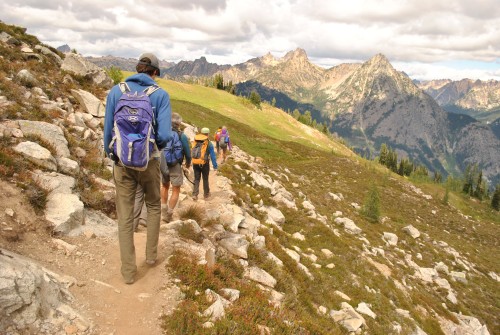
By Aly Gourd, member of the Institute’s 15th Graduate Cohort.
As graduate students and adventurers in the North Cascades, we take risks. We take risks in living where we do and we often purposely pursue adventure in the outdoors because we believe the benefits we gain outweigh the risks we choose to take.
“A huge challenge to overcome is the inaccessible view that so many hold toward wilderness. Messages are sent to so many people that the wilderness is not a place for them to be…”
This quote by Rosemary Saal leads the article titled Freedom in the Hills by Charlotte Austin. An alpinist and writer, Charlotte, recently published the research-based essay in Alpinist, a magazine featuring adventurers in the mountains, in which she introduces different perspectives on the variety of challenges met by women outdoor professionals. On March 3rd, graduate students in the North Cascades Institute’s 15th Cohort participated in a writing workshop with Charlotte, exploring forms of creative nonfiction writing and perspectives on how passion and hard work can translate into both a rewarding and challenging career.
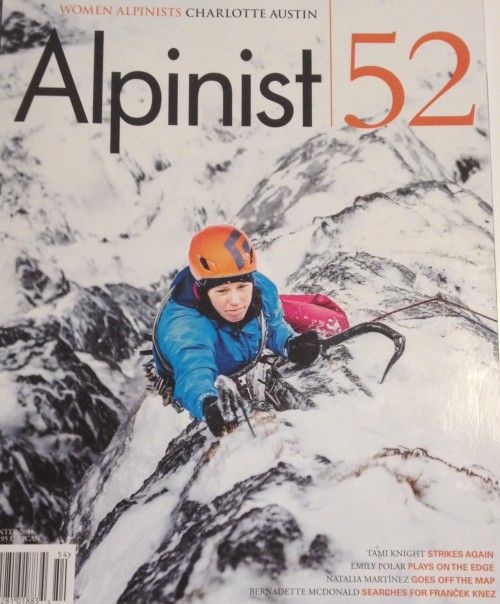
Alpinist issue 52 featuring Charlotte Austin
Charlotte’s stories of alpinism and adventure led to a recollection of the personal barriers she encountered in her pursuit of exploration. In her early years of climbing, she noticed there were very few women in the alpinist community and sensed an underlying lack of camaraderie and support in her work. “I’m different,” she thought. In navigating not only a physically and mentally challenging career path, she noticed exclusivity infiltrating the culture of the community. Still, she persisted to find her presence in the mountains and to give voice to these discouraging messages.
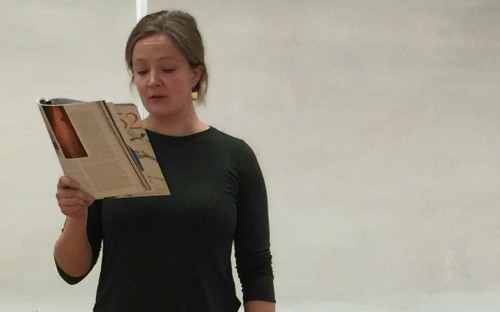
Charlotte Austin, North Cascades Institute
From her stories, we transitioned to a conversation on inclusiveness in education. What does it look like to empower young women in education and exploration? As we delved into the personal challenges we face as educators and adventurers, we also became aware of the importance of mentorship. Challenges we face ourselves or difficulties we see our students encounter can be met with the support of a mentor. By carefully choosing our language and the ways we support our students, we can avoid unintended microaggressions and find ways to teach to every student’s passions, learning and exploration.
Despite a growing number of women climbers and alpinists, encouraging portrayals of women taking significant risks in the mountains are difficult to come by.
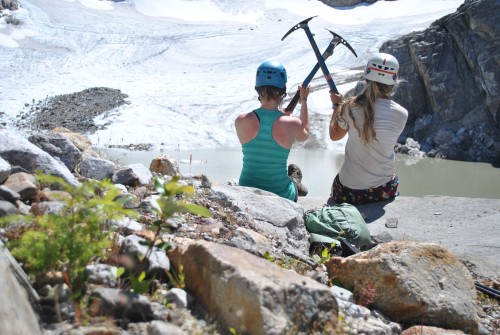
Aly Gourd and Emily Ford, Colonial Glacier
As Charlotte explains, “Committed alpinists often recall a hero who helped them imagine their own potential. Female mountaineers have yet to reach a critical mass in the media, and if young women primarily encounter images of female sport climbers and boulderers, they may assume consciously or unconsciously, that the world of alpinism is less welcoming to them.”
The gender disparity of women in alpinism and the overall outdoor guiding industry is apparent, but why is it happening? Questions of physical capabilities often arise in conversations, but as Lise Billon quotes in the article “The physical difference is not that great…and those other [mental] aspects can largely make up for it. Social and cultural conventions are the limiting factor…But, little by little…those customs are changing.”
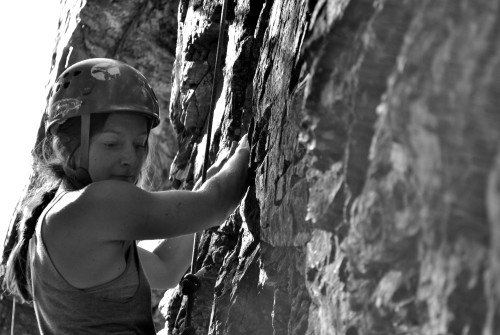
Annah Young, Mazama, WA
Alpinism and adventure require that a person embodies a number of character traits, such as “psychological endurance, imagination, good judgement, leadership and teamwork” to succeed in their interaction with the natural world. These characteristics are not necessarily “feminine” or “masculine” traits, but ones that all people across the gender spectrum can develop and exhibit. The misconceptions that specific traits or actions adhere to one gender create a culture that limits the possibilities for all people to pursue what interests them.
As role models in environmental education, we have the power to support all students in taking risks and challenging themselves. We are often given the opportunity to influence a student’s understanding of the place that they live and how they find their place in the natural world.
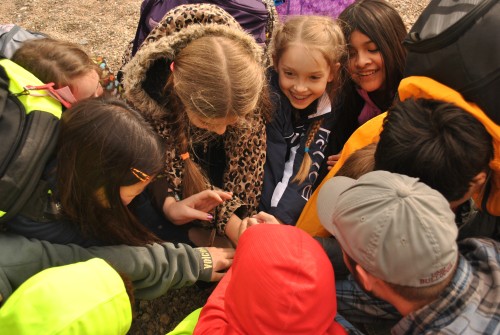
Mountain School Students, North Cascades Institute
As educators and advocates for our wild places, we bear the responsibility to encourage accessibility to the natural world so that all may find freedom in the wild places.
Read Charlotte Austin’s article Freedom in the Hills in Alpinist 52.

